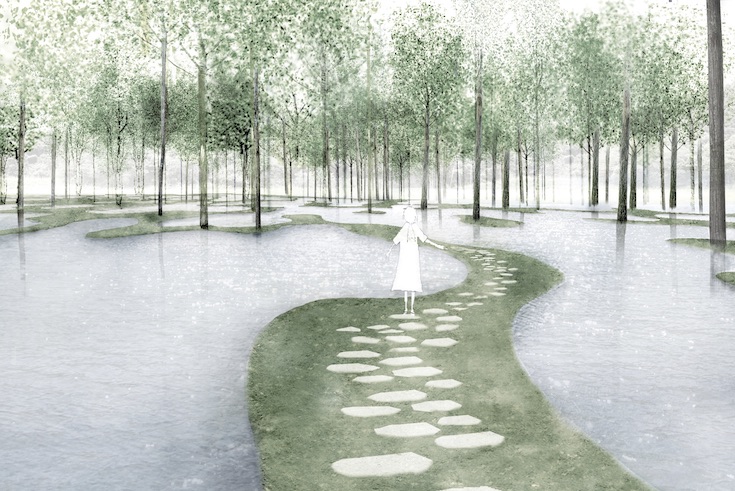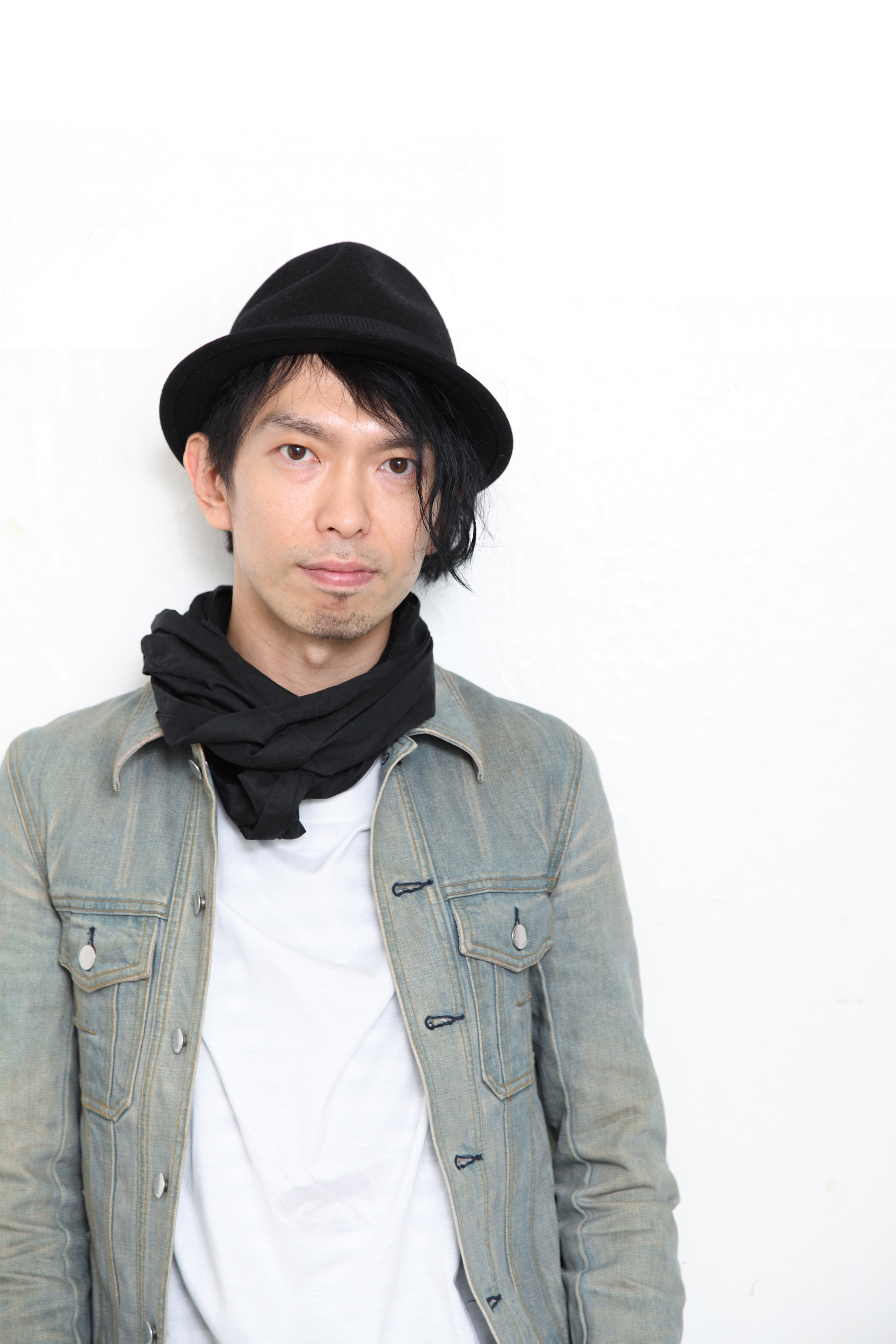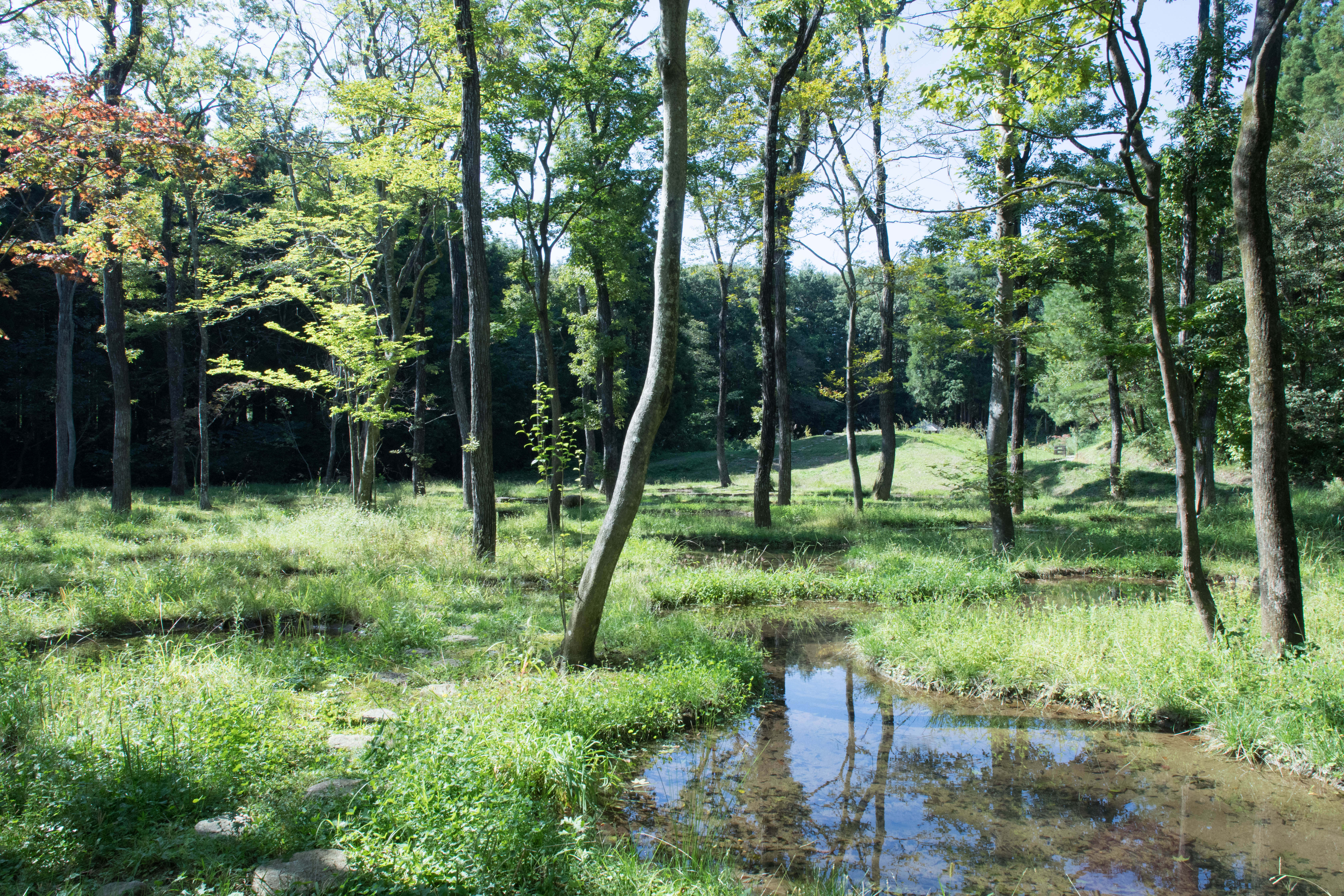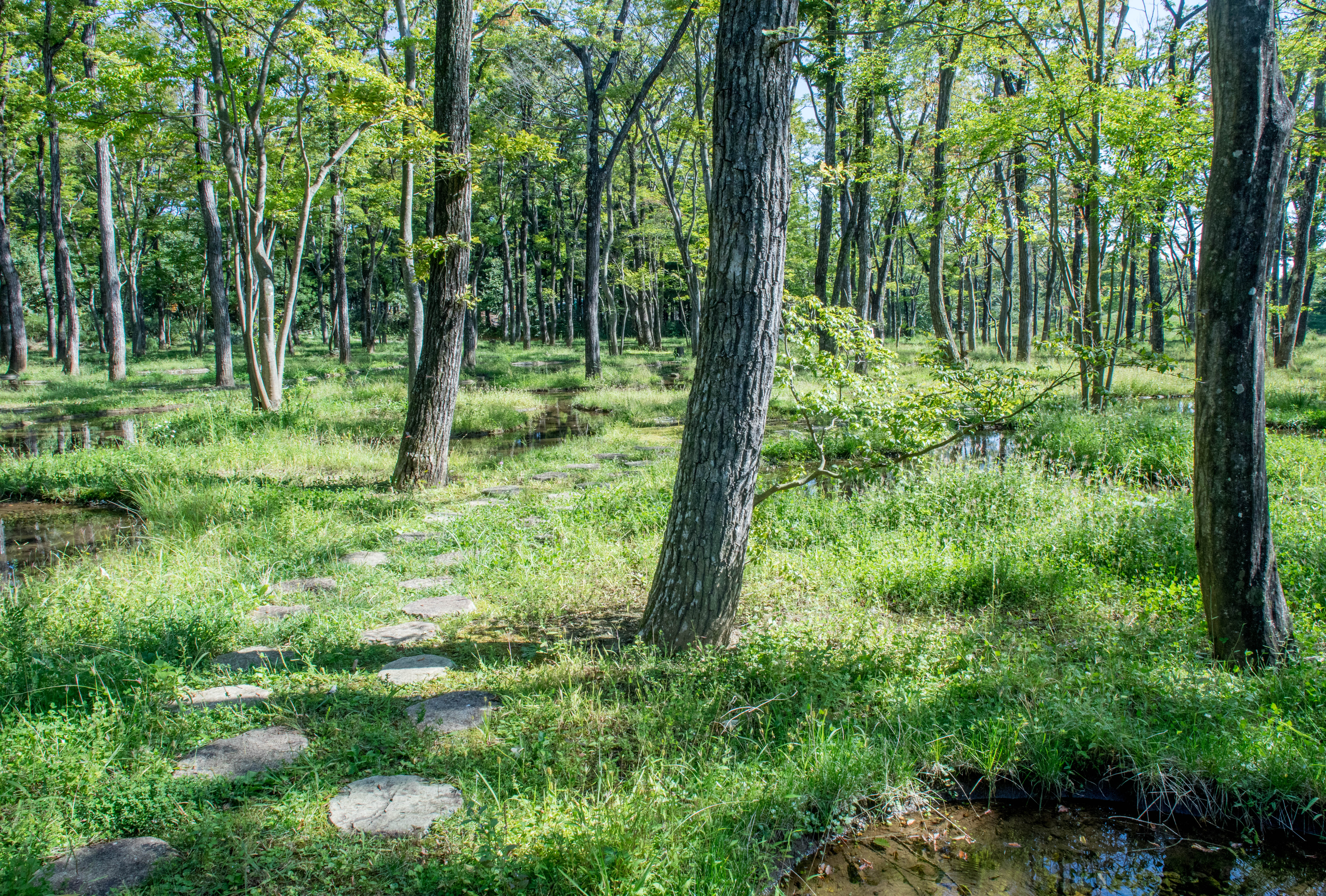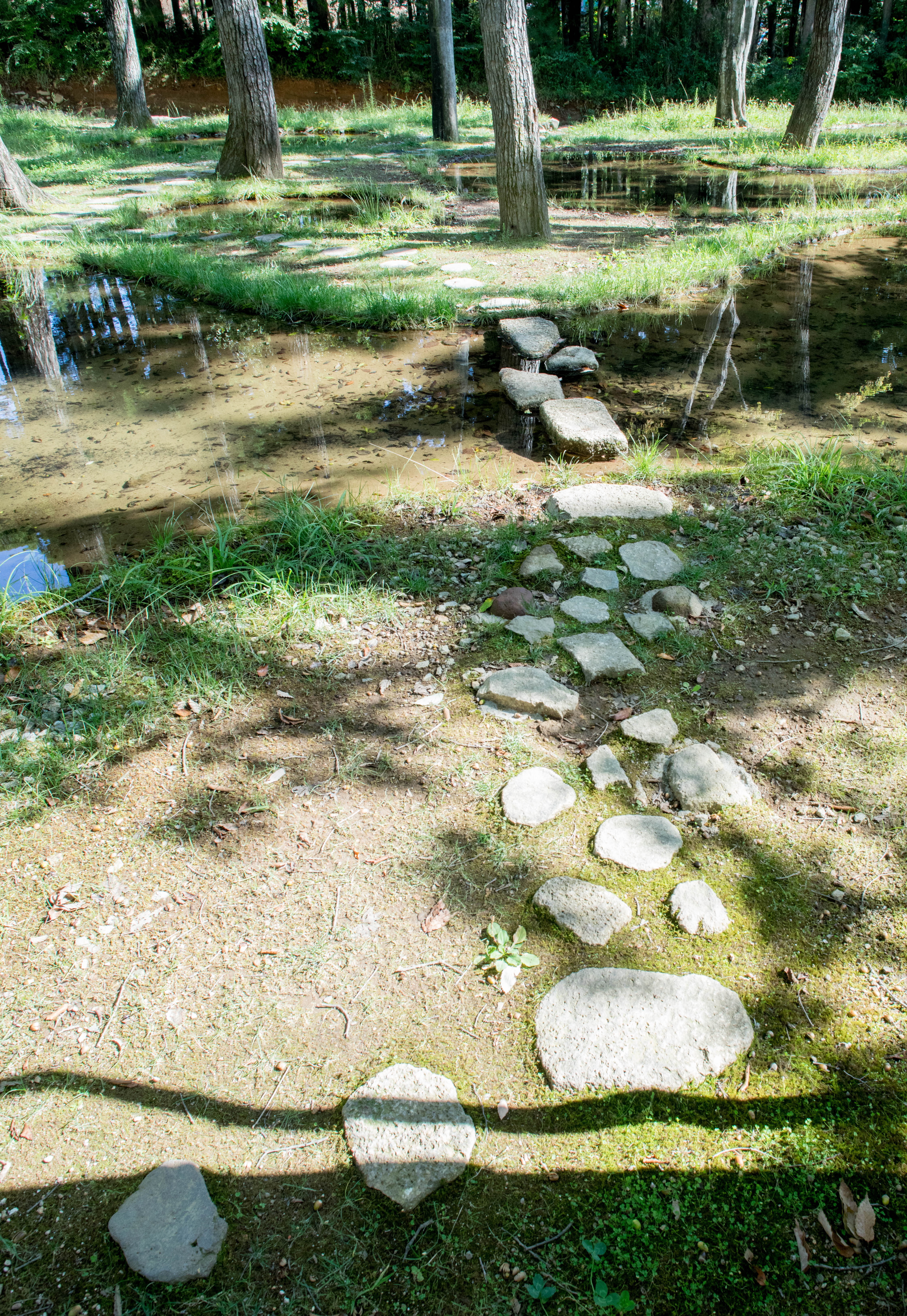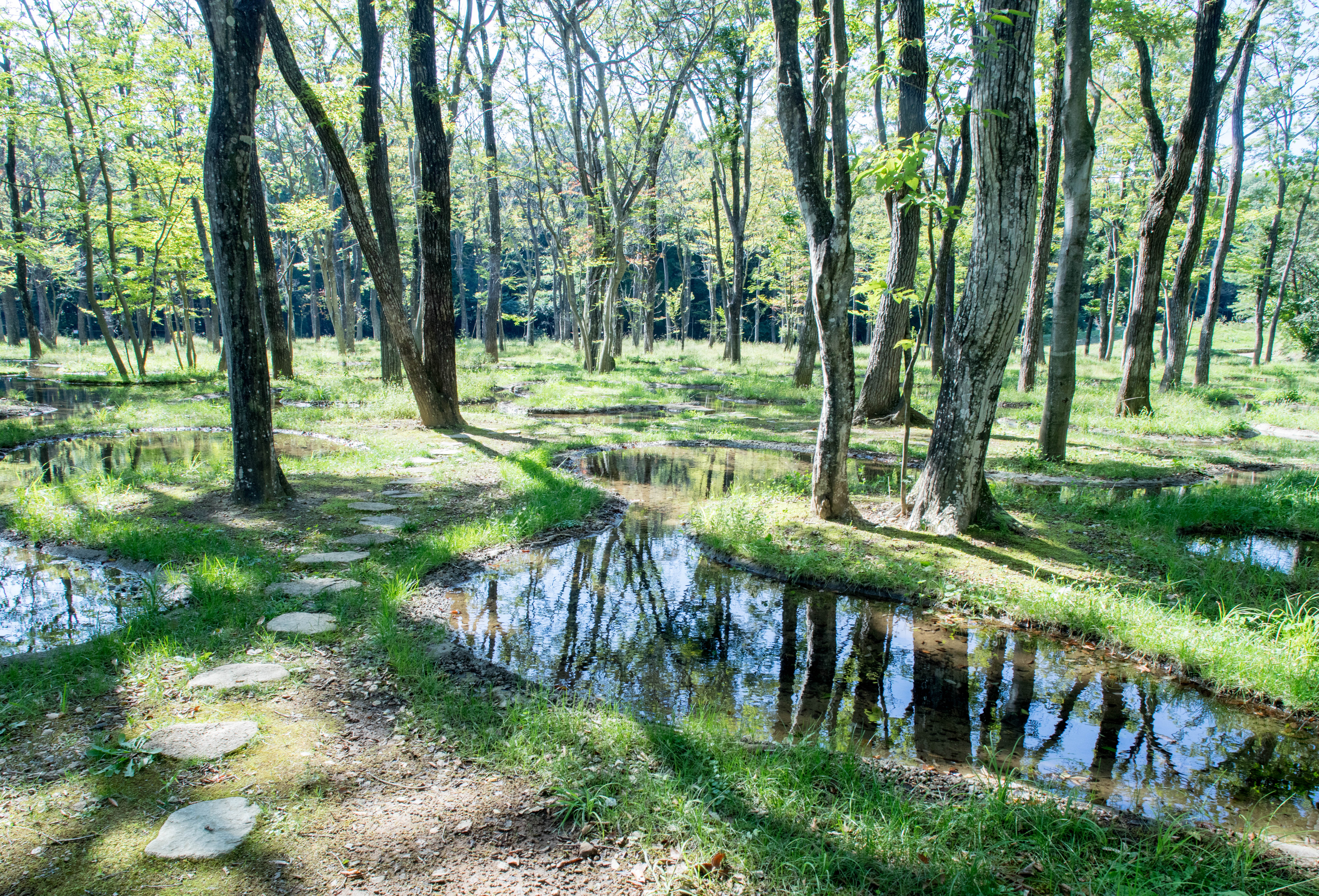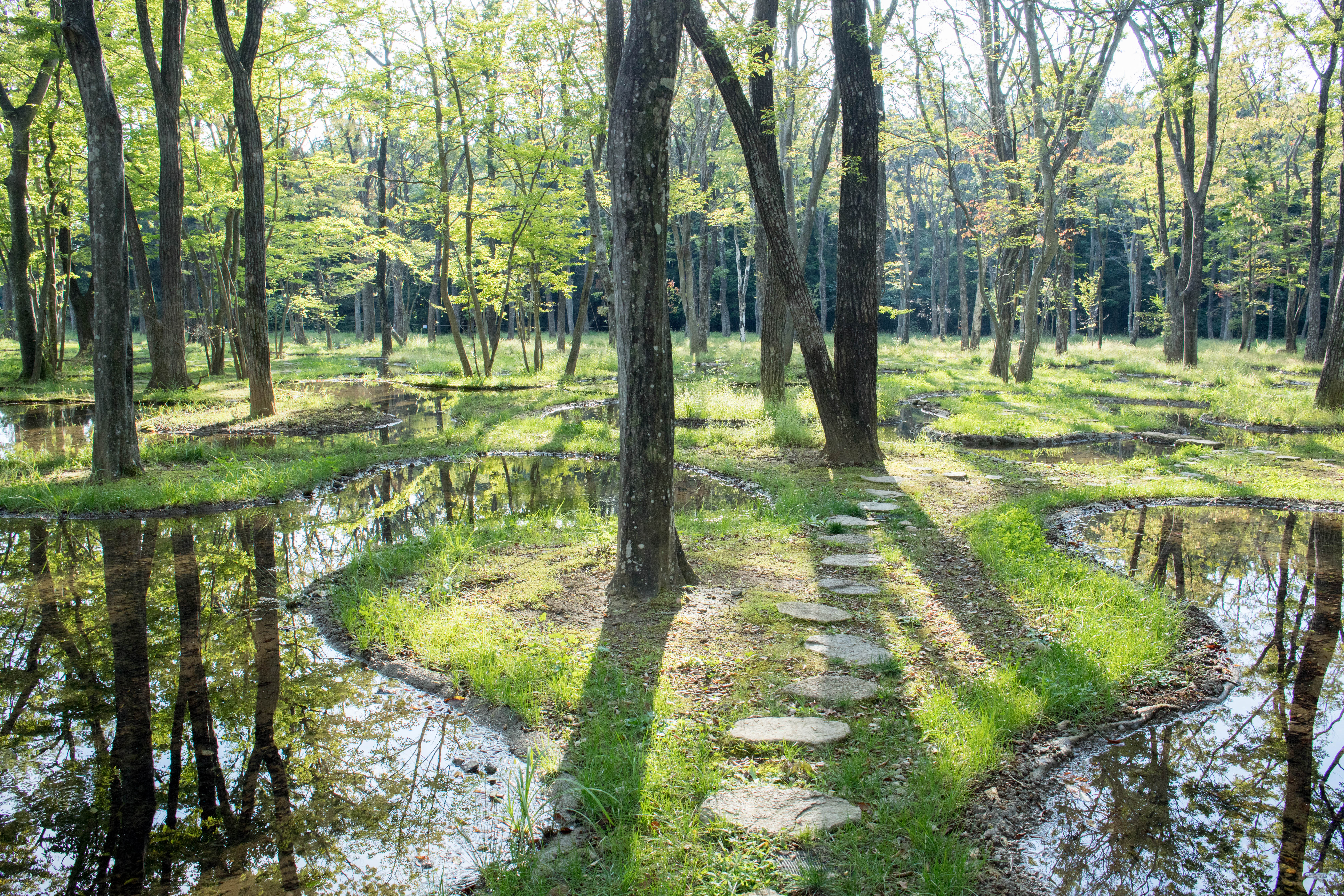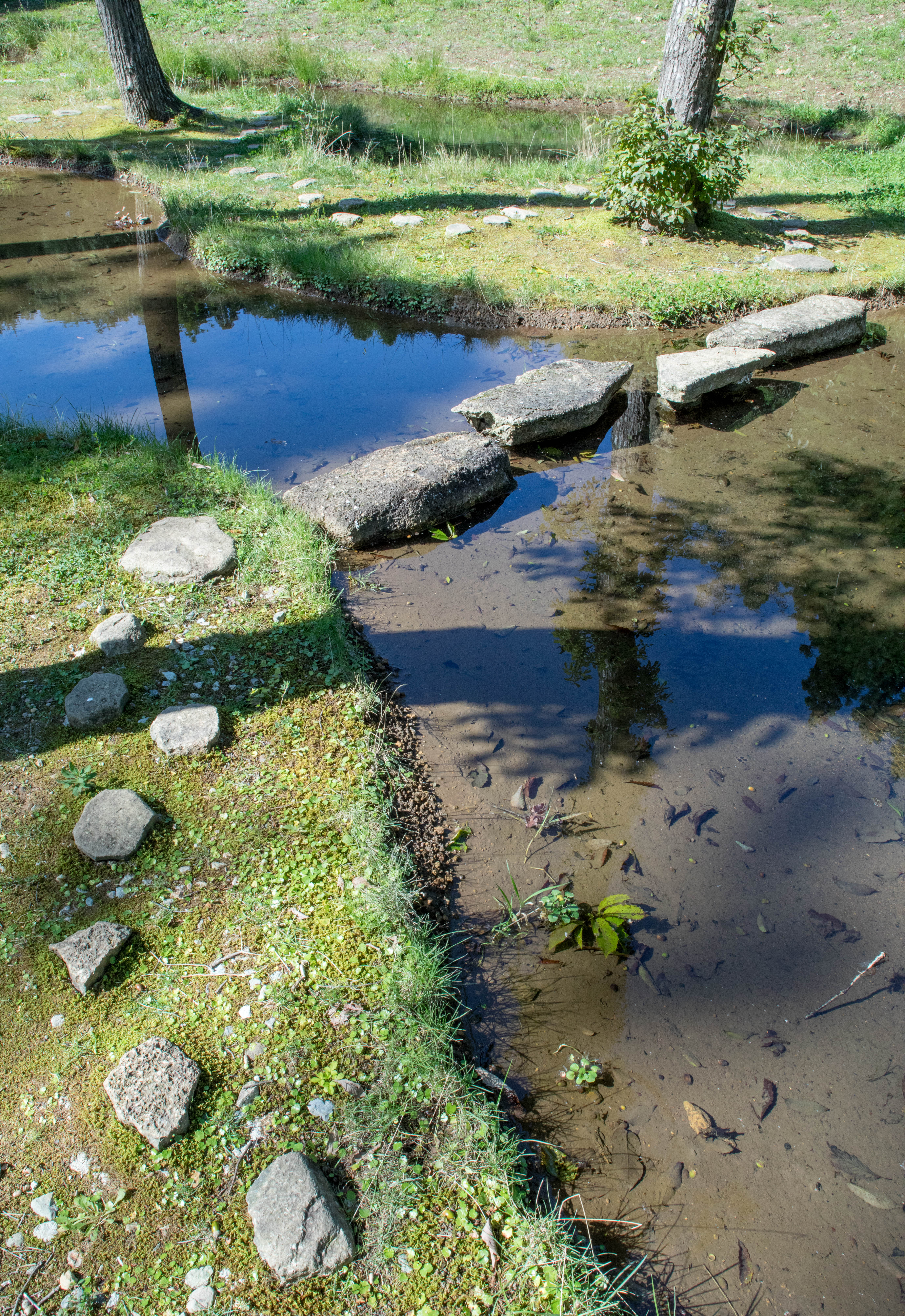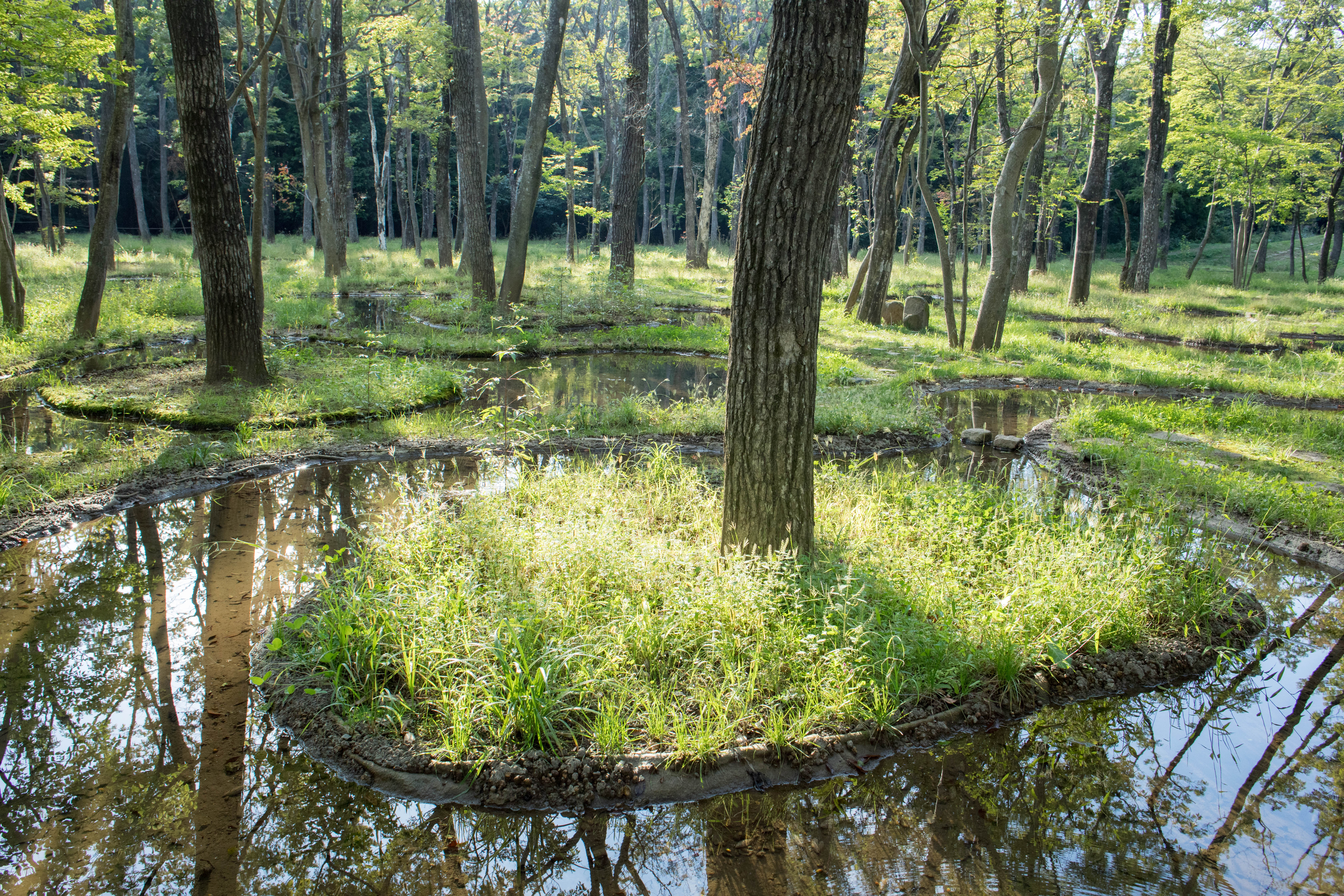Junya Ishigami gewinnt den Obel Award 2019
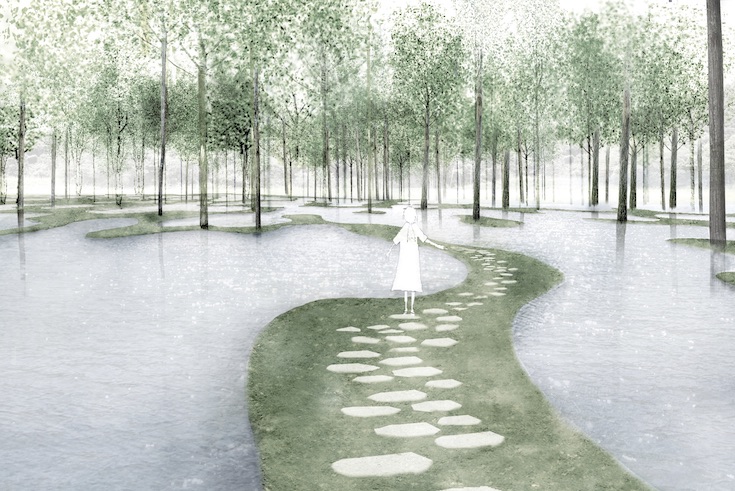
Image: junya.ishigami+associates
Im Utzon Center hat der japanische Architekt Junya Ishigami (1974) den erstmalig verliehenen Obel Award für seinen Art Biotop Water Garden (2013-2018) erhalten. Nach der Auszeichnung mit dem Goldenen Löwen auf der Architekturbiennale in 2010, der Einzelausstellung in der Pariser Fondation Cartier und der Gestaltung des diesjährigen Serpentine Pavilion, würdigt nun auch die Henrik Frode Obel Foundation seine experimentellen und statisch höchst anspruchsvollen Arbeiten.
Unter dem Thema „Welfare Through Architecture” betont die Jury mit dem Art Biotop Water Garden die Schnittstellen zwischen Landschaftsarchitektur, Kunst und Umweltschutz. Durch Verlagerung eines ganzen Waldgebiets habe Ishigami eine hochkünstliche Landschaft sowie gleichzeitig einen lebendigen Organismus erschaffen – ein poetischer Raum, in dem ehemalige, bestehende und zukünftige Schichten aufeinandertreffen, erklärt der Preisausschuss in Aalborg.
Der mit 100.000 Euro dotierte Obel Award zeichnet herausragende architektonische Beiträge der letzten fünf Jahre aus, die wegweisende Lösungen für dringende Problemstellungen entwickeln – seien es Manifeste, Masterpläne, Gebäude, Landschaftsprojekte oder Ausstellungen.
Weitere Informationen:
The 2019 Obel Award Jury: Martha Schwartz, Chair (Founder, Martha Schwartz Partners, USA), Kjetil Trædal Thorsen (Co-founder, Snöhetta, Norway), Louis Becker (Design Principal and partner, Henning Larsen, Denmark), and Dr Wilhelm Vossenkuhl (Professor emeritus, University of Munich, Germany). From 22 October, the Chinese architect Xu Tiantian (founding principal, DnA, Beijing, China) will join the jury.
The Henrik Frode Obel Foundation
Founded by Henrik Frode Obel (1942-2014), the foundation is based in Copenhagen. It has three main goals: to present the annual Obel Award in order to honour and recognise exceptional architectural contributions to human development; to award funds and travel grants to students of architecture in order to promote architectural excellence and a global perspective within academia; and to hold an annual symposium on different architectural themes in order to promote the circulation of new ideas across disciplines and continents. The foundation has a board of governors and a secretariat.
The Henrik Frode Obel Foundation draws on the endowment left by Henrik Frode Obel of 20 million Euros. Each year, a portion from the proceeds of the endowment goes to the award prize sum, the travel grants, the internationalisation funds, and the symposium.
Henrik Frode Obel (1942-2014)
Although born into one of Denmark’s leading business families, Henrik Frode Obel went on to become a successful businessman in his own right, living and working abroad all his adult life. Having no heirs, Henrik Frode Obel decided to dedicate his entire fortune to establish a foundation to reward exceptional works of architecture – and so to contribute in his own way to the development of architecture and design. His travels and first-hand knowledge of the world also inspired Henrik Frode Obel to assign a yearly sum to international exchanges and to travel bursaries for students of architecture and design. In this way, he could help new generations achieve architectural excellence and a global perspective.

